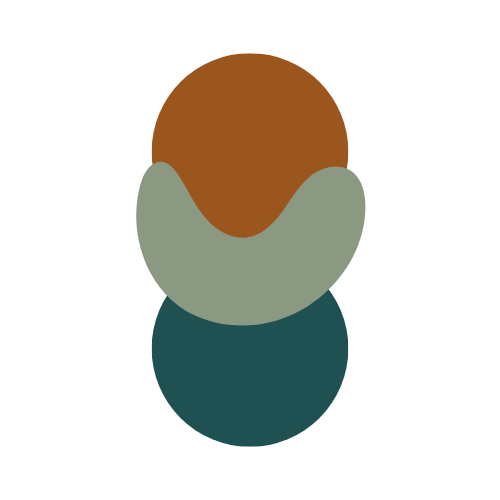Why healing your own attachment wounds helps you to be a more present parent
As anyone raising kids can tell you- parenthood brings up our own attachment stuff all the time. This may look like feeling complex relationships with extended family, feeling guilty if we say or do the “wrong” thing when parenting, feeling overly responsible for our child’s behaviors, or struggling with navigating our own identity as a parent. Parenthood is a wild ride- and so it understandably will bring up the things that have been needing our attention for some time.
Parenthood is all about relationships. How we relate to ourselves, our kiddos, and our support system can greatly impact our own experience as a parent. It may feel like a time where we don’t have the energy we need to focus on healing- and yet, healing work can be incredibly profound at this stage in our lives.
So, how does healing our own attachment wounds help us to show up more present in our parenting?
It helps us to hold space for the complicated feelings and experiences that show up in parenthood.
Parenthood is no easy feat. Your routines get thrown out of wack, your responsibilities feel never ending, and your moments of free time are few and far between. Even on the best parenting days, it makes sense that you will feel a number of different complicated emotions- which are often connected to your attachment to yourself, your child(ren), as well as your partner or other family members. Holding space to process these emotions can help you to make sense of it all and ride the waves without feeling like you’ve been thrown into the ocean.
It helps us to identify our own stuff that gets triggered in parenthood so that we don’t pass that along to our kiddos.
Those complicated emotions and experiences can often hit on some of our own stuff- whether it be past attachment wounds, trauma, insecurities, or unhealthy coping strategies. Having those parts of us be triggered in parenthood doesn’t mean we are doing something wrong, it just means we are human. By stepping back and observing patterns as well as our experiences, we can identify what parts of us are being triggered so that we can work on processing and healing those parts- rather than projecting those needs onto our child(ren).
It helps us to notice generational patterns of attachment wounding or trauma so that we can interrupt those cycles.
The parts of us that feel triggered in tough moments of parenthood may be related to generational wounding or trauma. For example, if your parents didn’t allow space for your emotions, you may struggle with holding space for the emotions of your child(ren). So, unpacking past wounding experiences and connecting to healing will not only help you to hold space for your emotions- but will also help you to hold space for your kiddo’s emotions and teach them how to do this for themselves.
It helps us to navigate our extended family relationships and other support systems so that we get what we need as parents.
Let’s face it, relationships with our extended families and support systems can sometimes feel messy once we enter parenthood. Understandably, our needs, boundaries, and availability will change in those relationships. When we have unmet attachment wounds going on, we are more likely to struggle with communicating these changes and may feel less secure in these relationships. Holding space for healing means that we will have more clarity on what feels complicated for us- and be able to connect to healthier ways to approach these changes with our loved ones.
It helps us to be able to connect to our identity and self-worth outside of parenthood.
Parenthood has a way of turning our lives upside down. The things that you used to for yourself do on a daily basis may be things that you can barely find time for on a weekly basis. The hobbies or activities that you used to enjoy may feel like a distant memory. Exploring our attachment wounds means that we also get to work on how we attach to ourselves. This can allow us to see what our needs are a bit more clearly so that we can better prioritize those needs- which means we can feel like we are more ourselves while we are also parents.
Not only is working on healing attachment wounds helpful for how we show up as parents- but it’s helpful for how we show up for ourselves as well. Sounds kinda nice right?
The healthiest humans are the healthiest parents. Taking care of ourselves helps us to be more present in our parenting because we are more present for ourselves. When we prioritize our own mental health, we model this act of self-care and self-love for our child(ren)- which is one of the most important things we can do as parents!
At Minnesota Attachment Collective, we are here to help. As the name states, we specialize in attachment work. All of our therapists are committed to holding space for healing attachment experiences, and we also specialize in navigating this healing in parenthood. If you are in Minnesota and looking to do this work, check out our team to see who would be the best fit for you!
